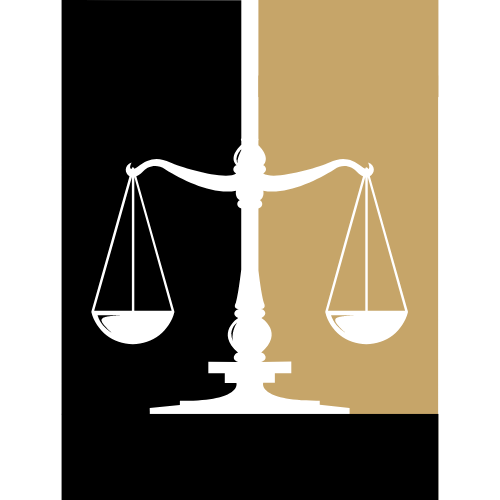Tax fraud is a serious crime that can lead to big legal and financial problems. We will look at the penalties for those who cheat on their taxes or commit financial crimes. Knowing these penalties is key to staying in line and avoiding big financial and personal issues.
Key Takeaways
- Sanctions for tax fraud can include hefty monetary fines, interest charges, and even criminal prosecution.
- Penalties can increase significantly for more complex cases involving unreported income, offshore accounts, or sophisticated schemes.
- The IRS Criminal Investigations Division actively pursues tax fraud cases, with voluntary disclosure programs offering reduced penalties for proactive compliance.
- Comprehensive reporting requirements for foreign assets and income under FATCA can also lead to severe consequences for non-compliance.
- Taxpayers have rights and protections, but navigating tax controversies requires professional assistance to ensure the best possible outcome.
Understanding Tax Fraud and Its Consequences
Tax fraud is a serious crime that’s more than just mistakes on tax forms. It’s when someone on purpose tries to avoid paying taxes. This can be done by not reporting all income, claiming too many deductions, or hiding money and information from the IRS.
Defining Tax Fraud: Intentional Evasion of Tax Obligations
The IRS says tax fraud is when someone on purpose doesn’t pay their taxes. This can include not reporting all income, claiming too many deductions, or hiding money and information. The main thing is that it’s done on purpose to avoid paying the right amount of taxes.
Distinguishing Tax Fraud from Negligence or Mistake
It’s key to know the difference between tax fraud and other tax issues. Negligence is when someone doesn’t take enough care when filling out their tax form. A mistake is when someone makes an error by accident. But tax fraud is when someone on purpose tries to avoid paying taxes. This is much more serious and can lead to big legal and financial problems.
Knowing the difference between tax fraud, negligence, and mistakes is very important. It decides what penalties and possible criminal charges someone might face. Taxpayers need to make sure their tax forms are accurate and complete to avoid tax evasion.
“Tax fraud is a willful and premeditated act, while negligence or mistakes are unintentional. The consequences can be severe, both financially and legally.”
Civil Penalties for Tax Fraud
When someone or a business is caught cheating on taxes, they face serious penalties. These penalties aim to stop tax cheating and get back lost tax money. The main penalties are fines and interest charges.
Monetary Fines and Interest Charges
The penalties for tax fraud can be very high. People who cheat on taxes might have to pay up to 75% of what they didn’t pay. Companies could pay up to 200% of what they didn’t pay. They also have to pay interest on the unpaid taxes, making things even worse.
| Penalty Type | Individual | Business |
|---|---|---|
| Fines | Up to 75% of underpaid tax | Up to 200% of underpaid tax |
| Interest Charges | Applicable on unpaid taxes | Applicable on unpaid taxes |
These civil penalties for tax fraud are meant to stop people from cheating. The IRS is very serious about these crimes. They will go after anyone who cheats on taxes with all they have.

“The consequences of tax fraud can be severe, both financially and legally. It’s crucial for individuals and businesses to understand the gravity of these offenses and to ensure they are fully compliant with all tax reporting and payment requirements.”
Criminal Sanctions for Tax Fraud
Tax fraud has serious consequences beyond just money. People found guilty can face jail time, big fines, and a criminal record. The IRS and federal prosecutors are tough on tax fraud, aiming to punish those who cheat.
The penalties for tax fraud depend on the case details, money involved, and the person’s role. Common punishments include:
- Imprisonment: Tax fraud can lead to up to five years in federal prison. More serious cases might get longer sentences.
- Fines: Fines for tax evasion can be up to $100,000 for individuals and $500,000 for companies. Plus, they must pay back any unpaid taxes.
- Probation: Some might get probation. This means they can’t handle money in certain ways and must check in with a probation officer.
The harshness of the punishment depends on the fraud’s size and type. Big schemes or using offshore accounts to hide money get tougher penalties. Smaller tax evasion cases might get less severe punishment.
“Tax evasion is a serious crime that undermines the integrity of our tax system and deprives the government of critical revenue. Those who engage in this behavior can expect to face severe consequences, including the possibility of prison time and substantial fines.”
The threat of criminal penalties is a strong warning against tax fraud. It shows how crucial it is to report income and assets correctly. Businesses and individuals must be careful with their tax planning to avoid criminal sanctions for tax fraud and tax evasion criminal charges.
Sanctions for tax fraud
Tax fraud can lead to serious trouble for both people and companies. The penalties for tax fraud are tough, including big fines and jail time. We’ll look at the different penalties for committing tax fraud.
Civil Penalties
One main penalty for tax fraud is civil penalties. These can include:
- Monetary fines that can reach up to 75% of the underpaid tax amount
- Interest charges on the unpaid taxes, which can further compound the financial burden
- Penalties for failing to file tax returns or accurately report income
Criminal Sanctions
There are also criminal penalties for tax fraud. People found guilty may face:
- Imprisonment for up to five years
- Fines of up to $100,000 (or $500,000 for corporations)
- Seizure of assets and property related to the fraudulent activities
The severity of criminal penalties depends on the fraud’s scale and nature.

The sanctions for tax fraud can harm more than just your wallet. A conviction can damage your reputation, make it hard to get loans, and even cost you your job or professional license.
“Tax fraud is a serious offense that can result in significant penalties, both civil and criminal. Individuals and businesses must be diligent in ensuring accurate tax reporting and compliance to avoid these severe consequences.”
Understanding penalties for tax fraud can be tough. That’s why it’s key to get help from tax pros and lawyers. By knowing the risks and staying compliant, you can avoid the bad effects of tax fraud.
Unreported Income and Offshore Accounts
Failing to report all taxable income can lead to serious consequences. This includes income from both domestic and foreign sources. We will look at penalties for unreported domestic income and the rules for foreign assets and offshore accounts under FATCA.
Consequences of Unreported Domestic Income
Not reporting domestic income can result in big fines from the IRS. These fines can be up to 75% of the unpaid tax. You might also face interest charges and even criminal charges for tax fraud.
Penalties for Undisclosed Foreign Assets and Accounts
The penalties for not reporting foreign assets and accounts under FATCA are harsh. You could face fines of up to 50% of the account’s balance. There are also civil and criminal penalties to worry about. It’s crucial to follow FATCA compliance rules to avoid these penalties.
If you have unreported income or foreign assets, it’s important to review your tax situation. Getting professional help is a good idea to make sure you’re following all the rules.
IRS Criminal Investigations Division
The IRS has a special unit called the Criminal Investigations Division (CI). It focuses on tax fraud and other financial crimes. This division is key to making sure everyone follows tax laws and faces consequences for breaking them.
Investigative Processes and Procedures
The CI division is very thorough in its work. They collect lots of evidence, look at financial records, and interview people. This helps them build strong cases against those suspected of tax fraud or other financial crimes.
- Referral and Initial Review: The CI division gets tips from many places, like the IRS and whistleblowers. They check to see if the case is real and how big it could be.
- Investigation and Evidence Collection: The CI team digs into financial records and bank accounts to find any wrongdoings. They also work with other law enforcement to get all the evidence they need.
- Case Development and Prosecution: If they find enough evidence, the CI division works with the Department of Justice. Together, they build a strong case for court.
The CI division makes sure tax fraud and financial crimes are fully investigated. They take action to hold people and companies responsible for their wrongdoings.
| Key Responsibilities of the IRS Criminal Investigations Division | Investigative Techniques Employed |
|---|---|
|
|
The IRS Criminal Investigations Division is crucial for keeping the tax system fair and honest. They make sure those who break the law face justice.

“The CI division’s work is essential in combating tax evasion and other financial crimes that undermine the fairness and stability of our tax system.”
Voluntary Disclosure Programs
The IRS has programs for people and businesses to fix past tax mistakes. These programs help avoid big penalties and get back on track with taxes. They are a good way to fix tax issues and reduce penalties.
Reducing Penalties Through Proactive Compliance
Joining these programs lets taxpayers fix tax fraud or unreported income early. This can greatly lower tax fraud penalties. It also helps avoid harsher criminal penalties.
The steps to join include:
- Reaching out to the IRS to join the program.
- Reviewing financial records for any issues or unreported income.
- Figuring out the correct tax owed, including interest and penalties.
- Submitting the disclosure and payment on time.
- Working closely with the IRS during the process.
By fixing past tax problems, taxpayers can avoid harsh penalties. They show they are serious about following tax laws.
“The voluntary disclosure program is a valuable tool for taxpayers who have made mistakes or omissions in their tax filings. It allows them to come forward proactively and work with the IRS to resolve their issues while minimizing the potential consequences.”
| Benefit | Description |
|---|---|
| Reduced Penalties | Participants in voluntary disclosure programs may be eligible for reduced civil penalties, often a fraction of the maximum penalties that could have been imposed. |
| Avoidance of Criminal Prosecution | Successful completion of the voluntary disclosure process can help taxpayers avoid criminal charges for tax fraud or evasion. |
| Restoration of Compliance | The voluntary disclosure program allows taxpayers to regain compliance and resolve any outstanding tax issues, putting them back on track with their tax obligations. |
Using voluntary disclosure programs helps fix past tax mistakes. It’s a smart way to reduce penalties and avoid legal trouble. This approach is great for those wanting to fix their tax issues and move forward confidently.
Income Tax Compliance and Reporting Requirements
Keeping up with income tax compliance and meeting all reporting needs is key to avoiding tax fraud. As responsible taxpayers, we must know and follow the tax reporting requirements from the Internal Revenue Service (IRS).
Filing tax returns on time is a major duty, for both personal and business needs. Not filing or giving wrong info can cause penalties and even tax fraud charges. Also, everyone and businesses must report all taxable income accurately, like wages, investments, and other income.
- Properly documenting and reporting all income sources
- Claiming only eligible deductions and credits
- Remitting estimated tax payments throughout the year, as required
- Maintaining thorough records and documentation for tax purposes
By being careful and tackling income tax compliance and reporting duties, we can lower the chance of tax fraud. This helps avoid the serious outcomes that could happen.

“Compliance with the tax laws is a responsibility of every taxpayer, and the IRS is committed to helping taxpayers meet this responsibility.”
It’s vital to keep up with income tax compliance and follow tax reporting requirements to avoid tax fraud. By knowing and meeting these duties, taxpayers can stay in good shape with the IRS. This also helps avoid harsh penalties or even criminal charges.
Foreign Asset Reporting and FATCA Compliance
The Foreign Account Tax Compliance Act (FATCA) has made it harder for U.S. taxpayers to report foreign assets. Not reporting these assets can lead to serious problems, like being accused of tax fraud.
FATCA was created in 2010 to stop U.S. citizens from hiding money abroad. It makes foreign banks tell the IRS about U.S. account holders. Not following FATCA can cause big fines and legal trouble for both people and banks.
Foreign Asset Reporting Requirements
U.S. taxpayers with foreign assets like bank accounts or real estate must report them every year. They must use Form 8938, Statement of Specified Foreign Financial Assets. Not filing this form can lead to big fines and even jail time for tax fraud.
The amount you need to report on Form 8938 depends on your filing status and where you live. Single people living in the U.S. must report if their foreign assets are over $50,000 at year-end or $75,000 at any time.
FATCA Compliance and Penalties
Foreign banks that don’t follow FATCA face a 30% tax on U.S.-source payments. This pushes them to give the IRS the information it needs.
For individuals, not following FATCA can lead to big fines or even jail. Not reporting foreign assets can cost up to $10,000. Plus, there’s an extra $10,000 for each 30 days you don’t file, up to $50,000.
Importance of Foreign Asset Reporting
Reporting foreign assets correctly is key to following U.S. tax laws and avoiding IRS problems. Those who don’t report their foreign assets face fines, jail, and more IRS checks.
By knowing FATCA rules and reporting foreign assets right, U.S. taxpayers can stay in good shape with the IRS. This avoids the serious problems that come with tax fraud accusations.
| Reporting Threshold | Penalty for Noncompliance |
|---|---|
| Single taxpayers living in the U.S.: Foreign assets exceeding $50,000 at the end of the year or $75,000 at any time during the year | Monetary fines up to $10,000, with an additional $10,000 for each 30-day period of non-filing, up to a maximum of $50,000 |
| Married taxpayers filing jointly living in the U.S.: Foreign assets exceeding $100,000 at the end of the year or $150,000 at any time during the year | Monetary fines up to $10,000, with an additional $10,000 for each 30-day period of non-filing, up to a maximum of $50,000 |
| Taxpayers living abroad: Foreign assets exceeding $200,000 at the end of the year or $300,000 at any time during the year | Monetary fines up to $10,000, with an additional $10,000 for each 30-day period of non-filing, up to a maximum of $50,000 |
Not following FATCA can cause big problems for both people and banks. Knowing the rules and following them can help avoid tax fraud accusations and protect your money.
Fraud Liability Protections
When facing tax fraud allegations, taxpayers have legal safeguards and rights to protect them. The IRS Fraud Handbook explains the statute of limitations and taxpayer rights. These can help defend against unfair fraud claims.
Statute of Limitations and Taxpayer Rights
The tax fraud statute of limitations is key for those accused. The IRS has 6 years to assess civil penalties and 3 years for criminal prosecutions. But, there are exceptions and nuances to these time frames.
Understanding taxpayer rights is also crucial. These rights include being informed, receiving quality service, and paying the correct tax amount. They also include challenging the IRS and appealing decisions in an independent forum.
- Taxpayers have the right to be notified of any IRS actions or decisions that may affect them.
- Taxpayers have the right to receive prompt, courteous, and professional assistance from the IRS.
- Taxpayers have the right to challenge the IRS’s position and have their case heard by an impartial decision-maker.
- Taxpayers have the right to appeal an IRS decision in an independent forum, such as the U.S. Tax Court.
Using these tax fraud liability protections is vital in tax fraud cases. It ensures taxpayer rights are respected throughout the process.

“Taxpayers have the right to be treated fairly and with respect by the IRS, and to have their rights protected throughout the tax administration process.”
Tax Amnesty Initiatives
In recent years, many places have started tax amnesty programs. These programs aim to get taxpayers to report past tax issues. They offer lower penalties or even no criminal charges, making them a good choice for those wanting to get back in good standing.
These amnesty programs only last for a short time. They give taxpayers a chance to report unreported income or hidden assets. By doing this, they can avoid big penalties and legal trouble. Plus, they help the state by bringing in more taxes.
| Key Features of Tax Amnesty Programs | Potential Benefits for Taxpayers |
|---|---|
|
|
It’s crucial to understand the details of tax amnesty programs. Make sure you meet all the requirements and deadlines. Getting help from a professional can also be very helpful. They can guide you through the process and help you make the right choice.
“Tax amnesty programs provide a unique opportunity for taxpayers to come forward and resolve past tax issues, often with reduced penalties and the chance to avoid criminal consequences.”
Navigating Tax Controversies
When you face tax fraud allegations or tax disputes, knowing your options is key. Understanding the legal and administrative steps can be tough. But, with the right strategy, you can tackle these issues and avoid big problems.
Strategies for Resolving Tax Disputes
There are several ways to handle tax disputes, and the best one depends on your situation. Here are some effective strategies:
- Working with Tax Professionals: Getting help from skilled tax lawyers, accountants, or enrolled agents is crucial. They guide you through tax laws, talk to the IRS, and build a strong defense.
- Negotiating with the IRS: Sometimes, you can settle with the IRS. This might mean showing evidence, discussing penalties, or finding better payment plans.
- Exploring Alternative Dispute Resolution: You might also try mediation or appeals to solve disputes without going to court. These methods can be quicker and cheaper.
Using these strategies for resolving tax disputes helps you tackle tax controversies. It can lead to better outcomes that protect your finances.
“The key to successfully resolving tax disputes is to approach the process proactively and with a clear understanding of the available options.” – Jane Doe, Tax Attorney
Preventive Measures to Avoid Tax Fraud Allegations
It’s vital to follow tax laws to avoid tax fraud penalties. Taking steps ahead of time can lower the chance of tax evasion. Here are some important tax compliance best practices:
- Keep accurate and detailed financial records. Good record-keeping is key to backing up all income, deductions, and credits on tax returns.
- Get professional tax advice. Talking to a skilled accountant or tax lawyer can help you follow all rules and avoid mistakes.
- Use strong internal controls. Create clear rules for handling money, getting approvals, and reporting to stop any misuse or wrong reporting.
- Keep up with tax law changes. Always check for updates to tax rules and change your ways to stay compliant.
- Do self-audits often. Reviewing your tax filings and accounting regularly can spot and fix problems early.
By following these preventive measures, you protect your finances and dodge tax fraud allegations and their harsh penalties.
“The best defense against tax fraud is a strong offense of compliance and transparency.”
Remember, the main way to prevent tax fraud is to always stick to tax compliance best practices. By being proactive, you keep your finances safe and avoid the high costs of tax mistakes.
Consequences for Tax Professionals and Advisors
Tax fraud allegations can seriously harm the careers of tax professionals. This includes accountants, tax attorneys, and financial advisors. They are seen as trusted advisors and must act with the highest ethics.
If they are found to have helped with tax fraud, they face big consequences. These can ruin their careers and livelihoods. They might lose their professional licenses or face lawsuits from clients who lost money.
They could also get in trouble with the law. This could mean fines or even jail time. The damage to their reputation can make it hard to find new jobs or clients.
Tax professionals need to be very careful and follow strict ethical rules. They must make sure all tax work is legal and watch for signs of fraud. This helps protect their careers and the trust of their clients.
By staying true to their professional values, tax advisors can keep their careers safe. They also help keep the tax system stable and trustworthy.
Seeking Professional Assistance
Dealing with tax fraud can be very challenging. It’s often necessary to get help from experts. Tax attorneys, forensic accountants, and others can offer the needed skills and support.
When you’re dealing with tax fraud, it’s key to work with qualified experts. They know a lot about tax law, investigations, and the IRS’s rules. They can help you understand the legal system, protect your rights, and find ways to lessen the impact of tax fraud accusations.
Getting help from tax fraud legal experts and forensic accountants can really help. They can explain your choices, build a strong defense, and improve your chances of a good outcome. Their experience and knowledge are very important in navigating the complex world of tax fraud.
Tax and social fraud: What measures have already been launched to secure the Vitale card?
TAX AND SOCIAL FRAUD: WHAT MEASURES HAVE ALREADY BEEN LAUNCHED TO SECURE THE VITALE CARD?
FAQ
What are the sanctions for tax fraud?
How is tax fraud defined, and how does it differ from negligence or mistakes?
What are the civil penalties for tax fraud?
What are the potential criminal sanctions for tax fraud?
What are the consequences of unreported domestic income and undisclosed foreign assets?
How does the IRS Criminal Investigations Division investigate tax fraud?
What are the benefits of voluntary disclosure programs?
What are the key income tax compliance and reporting requirements?
What are the foreign asset reporting requirements under FATCA?
What legal protections and rights do taxpayers have when facing tax fraud allegations?
What are some tax amnesty initiatives that can help resolve past tax issues?
How can tax professionals and advisors be held liable for tax fraud?
Why is it important to seek professional assistance when navigating tax fraud issues?
